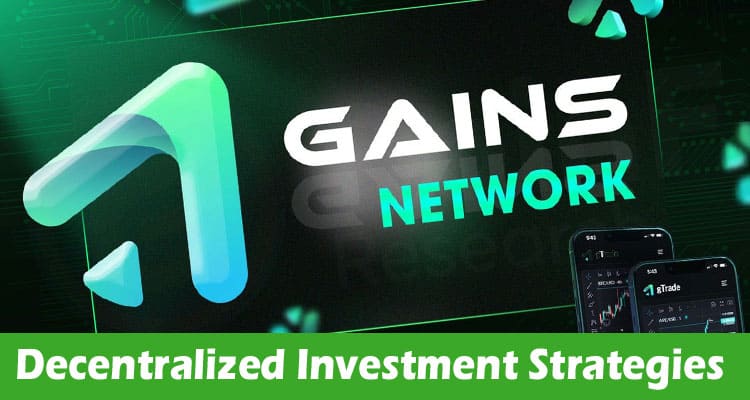Decentralized investment strategies, powered by advancements in blockchain technology, are ushering in a new era of finance. These strategies promise transparency, autonomy, and democratized access unlike anything seen before. When the time comes, you’ll want to opt for a reliable exchange such as QuantomPrimeProfit for buying or selling cryptocurrencies.
The Rise of GNS in Decentralized Investment
In the dynamic world of finance, Global Network Systems (GNS) has emerged as a pivotal player, especially when we talk about decentralized investment strategies. For those not familiar with the term, GNS refers to a network-based approach to investment, focusing on decentralizing financial management and strategies to foster a more transparent and potentially more equitable financial ecosystem.
At its core, GNS aims to redefine the boundaries of traditional investment by leveraging decentralized processes. This decentralization offers a departure from conventional investment systems, which often hinge on central entities or intermediaries. By eliminating these middlemen, GNS facilitates direct peer-to-peer interactions, thus promoting efficiency and reducing costs.
But what makes GNS especially notable in the realm of investment? One of the significant attributes is its adaptability. The world of investment is notoriously unpredictable. Markets fluctuate, economies shift, and global events can drastically affect investment outcomes. GNS offers a robustness against these unpredictable elements, providing investors with tools that are not as tightly bound to traditional market variables.
Moreover, GNS champions the cause of transparency, a trait often sought but not always found in the financial domain. With decentralized investments, every transaction and its details can be transparently viewed by those within the network. This kind of openness is believed to engender trust among investors, making the investment process not just a monetary transaction but a relationship built on clarity and trust.
However, no system is without its challenges, and GNS is no exception. While it promises flexibility and security, it’s essential for investors to fully understand the system’s intricacies and navigate the decentralized landscape cautiously. The rise of GNS in decentralized investment isn’t just a testament to the system’s potential but also to the evolving needs of the modern investor – a search for more control, clarity, and adaptability in their investment ventures.
The Future of Decentralized Investment Strategies
Decentralized investment strategies are set to revolutionize the finance world, representing a seismic shift from the traditional centralized models we’ve come to know. Their rise is not merely a trend; it’s an evolution borne from the need for more transparency, autonomy, and resilience in investment frameworks.
When we consider the future, it’s apparent that decentralized finance (DeFi) platforms, the backbone of many decentralized investment strategies, are positioned to grow exponentially. Their promise of democratizing access to financial services is unmatched. In a world where central financial entities often gatekeeper critical services, DeFi platforms open the doors to anyone with an internet connection, leveling the playing field.
Another key factor propelling decentralized strategies is the burgeoning trust in blockchain technology. As blockchain becomes more ingrained in our digital infrastructures, its immutable and transparent nature will further bolster the credibility and appeal of decentralized investment. Investors can have confidence in a system where transactions are permanently recorded and resistant to unauthorized alterations.
However, it’s not just about technology. The future of decentralized investment strategies will also be shaped by emerging global challenges. In an era marked by economic uncertainties, geopolitical tensions, and the rapid pace of technological advancements, the agility of decentralized systems becomes a critical asset. Instead of relying on a singular entity or a set of predefined rules, decentralized strategies can quickly adapt, sourcing wisdom from a distributed network of participants.
Lastly, innovations are on the horizon. As the DeFi world expands, new tools, services, and platforms are emerging. These innovations will offer investors more sophisticated strategies, from automated investment protocols to advanced risk management tools, all without the need for central intermediaries.
The future of decentralized investment strategies appears not only promising but inevitable. As the world gravitates towards more open, transparent, and resilient financial systems, decentralized models stand out as the vanguard of this new era. Investors and financial enthusiasts should prepare, as the landscape of investment is on the cusp of a profound transformation.
Conclusion
The evolution towards decentralized finance signifies a profound shift in the financial landscape. As the world seeks transparency and democratized access, these strategies stand at the forefront of change.


